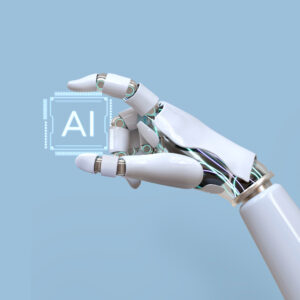
The history of artificial intelligence (AI) is a captivating journey that spans decades, marked by significant milestones, breakthroughs, and the continuous evolution of machine intelligence. In this article, we’ll explore the rich history of AI, from its conceptual origins to the cutting-edge technologies shaping the present and future.
Conceptual Beginnings
The idea of machines possessing human-like intelligence dates back to ancient civilizations. Mythological tales and philosophical ponderings hinted at the possibility of creating intelligent beings. However, it was in the 20th century that the concept of artificial intelligence began to take more concrete shape.
Early Computational Devices
The development of early computational devices, such as Charles Babbage’s Analytical Engine in the 19th century, laid the groundwork for the mechanization of logical operations. These innovations, coupled with advances in mathematics and logic, set the stage for the computational foundations of AI.
Dartmouth Conference and Birth of AI
In 1956, the Dartmouth Conference, organized by John McCarthy, Marvin Minsky, Nathaniel Rochester, and Claude Shannon, marked the official birth of artificial intelligence as a field of study. The conference aimed to explore how machines could simulate aspects of human intelligence, sparking widespread interest and research.
Early AI Applications
The 1950s and 1960s saw the development of early AI programs, including the Logic Theorist and General Problem Solver. These programs demonstrated the potential for machines to perform tasks that required human-like reasoning and problem-solving skills.
AI Winter and Resurgence
Despite initial enthusiasm, the 1970s and 1980s witnessed a period known as the “AI winter,” characterized by dwindling funding and unmet expectations. However, a resurgence occurred in the 1990s with breakthroughs in machine learning, expert systems, and the development of practical applications like speech recognition and image processing.
Machine Learning Revolution
The late 20th century and early 21st century witnessed a machine learning revolution, with advancements in algorithms, data availability, and computing power. Techniques like neural networks and deep learning fueled remarkable progress in natural language processing, image recognition, and other AI applications.
AI in the 21st Century
In the 21st century, AI has become an integral part of everyday life. Autonomous vehicles, virtual assistants, recommendation systems, and language models like GPT-3 showcase the breadth and depth of AI applications. Ethical considerations, responsible AI development, and ongoing research continue to shape the trajectory of AI technology.
Conclusion
The history of AI is a testament to human ingenuity and the relentless pursuit of creating intelligent machines. From conceptual beginnings to the current era of advanced machine learning, AI has evolved into a transformative force with profound implications for diverse industries and aspects of daily life. As we navigate the unfolding chapters of AI history, the possibilities and challenges of this technology continue to captivate the imagination and drive innovation.
